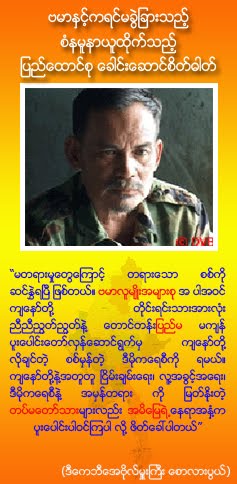 Buddhist meditation is just as effective as drugs at combating depression, a study has found.
Buddhist meditation is just as effective as drugs at combating depression, a study has found. The technique is said to help people focus on the present instead of dwelling on the past or planning the future.
Fifteen months after an eight-week trial, 47 per cent of people with long-term depression who underwent the group psychology therapy had suffered a relapse, compared with 60 per cent of those taking anti-depressant drugs.
Professor Willem Kuyken, from the Mood Disorders Centre at the University of Exeter, said the technique - known as mindfulness-based cognitive therapy (MBCT) - could shorten NHS waiting lists for psychological therapies.
He said: "Anti-depressants are widely used by people who suffer from depression and that's because they tend to work.
"But, while they're very effective in helping reduce the symptoms of depression, when people come off them they are particularly vulnerable to relapse.
"MBCT takes a different approach - it teaches people skills for life.
"What we have shown is that when people work at it, these skills for life help keep people well.
"Our results suggest MBCT may be a viable alternative for some of the 3.5 million people in the UK known to be suffering from this debilitating condition."
He said the therapy is less costly than other treatments because one psychologist could treat many people.
Di Cowan, 53, of Sampford Peverell, East Devon, took anti-depressants for more than 15 years before undergoing the group psychology.
The retired maths teacher now practises meditation techniques four or five times a week.
He said: "It's helped me immensely. It's given me the ability to come up against something that would have previously thrown me, think it through, come up with a solution and then move on.
"It's helped me deal with recurrent thoughts.
"My view of the world has changed and I look at life in a new light. I'm much more cheerful and positive. Other people noticed a change.
"My friends and family were very quick to comment that I was showing an improvement."
The trial saw 123 people with long-term depression split into two groups. Half underwent MBCT in groups of between eight and 15 people, while the other half continued with their medication.
The study, funded by the Medical Research Council (MRC), is published in the Journal of Consulting and Clinical Psychology.
Telegraph
Fifteen months after an eight-week trial, 47 per cent of people with long-term depression who underwent the group psychology therapy had suffered a relapse, compared with 60 per cent of those taking anti-depressant drugs.
Professor Willem Kuyken, from the Mood Disorders Centre at the University of Exeter, said the technique - known as mindfulness-based cognitive therapy (MBCT) - could shorten NHS waiting lists for psychological therapies.
He said: "Anti-depressants are widely used by people who suffer from depression and that's because they tend to work.
"But, while they're very effective in helping reduce the symptoms of depression, when people come off them they are particularly vulnerable to relapse.
"MBCT takes a different approach - it teaches people skills for life.
"What we have shown is that when people work at it, these skills for life help keep people well.
"Our results suggest MBCT may be a viable alternative for some of the 3.5 million people in the UK known to be suffering from this debilitating condition."
He said the therapy is less costly than other treatments because one psychologist could treat many people.
Di Cowan, 53, of Sampford Peverell, East Devon, took anti-depressants for more than 15 years before undergoing the group psychology.
The retired maths teacher now practises meditation techniques four or five times a week.
He said: "It's helped me immensely. It's given me the ability to come up against something that would have previously thrown me, think it through, come up with a solution and then move on.
"It's helped me deal with recurrent thoughts.
"My view of the world has changed and I look at life in a new light. I'm much more cheerful and positive. Other people noticed a change.
"My friends and family were very quick to comment that I was showing an improvement."
The trial saw 123 people with long-term depression split into two groups. Half underwent MBCT in groups of between eight and 15 people, while the other half continued with their medication.
The study, funded by the Medical Research Council (MRC), is published in the Journal of Consulting and Clinical Psychology.
Telegraph









No comments:
Post a Comment